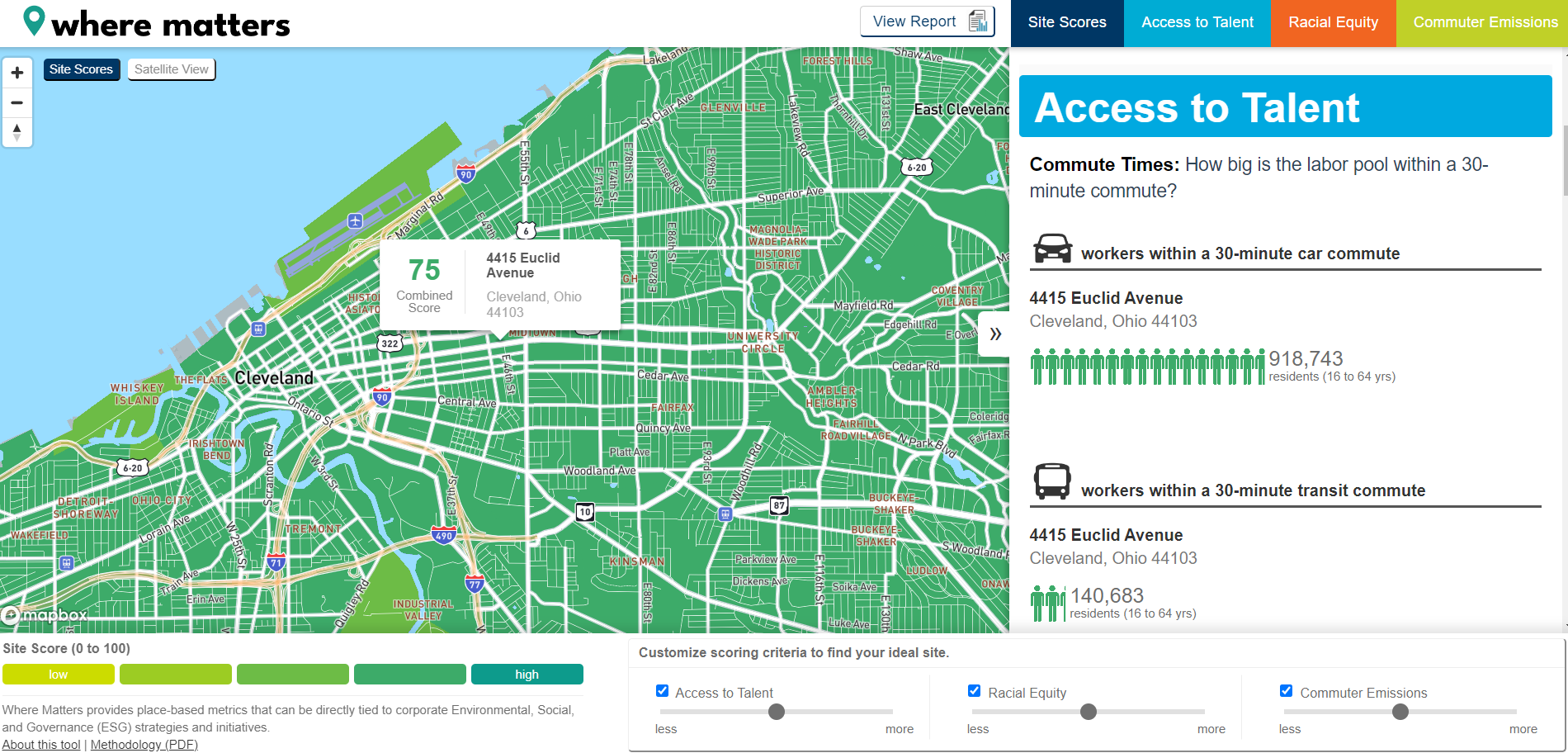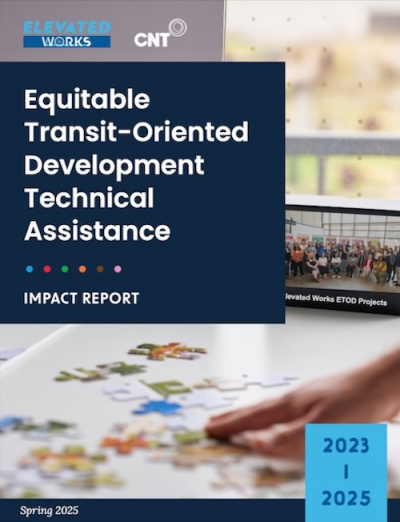
Neighborhood Affordability: What Does Parking Have To Do With It?
One out of every three spaces. CNT visited the back lots and garages of apartment buildings around Chicago at 4:00 a.m., when tenants are asleep and their cars parked, and found one third of parking spaces empty. This excess parking capacity is a neighborhood affordability issue. Each indoor, underground parking space costs $37,300 to build. Multiply that by all of the spaces in the lot, and the price tag is huge. What if developers applied that money to build more affordable housing instead... Read the rest of this entry »
Why Keeping the Promise Will Be a Game Changer for Building an Equitable Chicago
Many of Chicago’s most desirable neighborhoods are anchored by CTA stations, which has pushed rents sky high. But we need to stop and think – should access to the CTA only be available to those who can afford high rents? Doesn’t it hurt our entire city when resource-strapped households are hit with the double whammy of unaffordable rents and costly auto ownership? We support the proposed Keeping the Promise ordinance, designed to reform the Chicago Housing Authority, because we believe that... Read the rest of this entry »
Putting Places First: Implementing GO TO 2040 through Priority Development Areas
The Chicago Metropolitan Agency for Planning (CMAP) has helped chart a new framework for regional development focused on underutilized land in existing communities and anchored by walkable neighborhoods, transit, and freight. But our new report, Putting Places First: Targeting Infrastructure Improvements to Spur Investment in Priority Development Areas, reveals that the transportation projects we’re funding aren’t aligned with—and sometimes are completely opposed to—that goal. Cities in the... Read the rest of this entry »
Living in a Transit-Oriented Development Should Be an Option for Everyone
After years of lackluster growth and evidence that Houston might surpass Chicago in population, the Chicago City Council this week took a bold step in expanding its transit-oriented development (TOD) ordinance to provide infill potential for more housing near transit stops. CNT has long been a proponent for such changes, since our research has shown that for a decade-long period (2000-2010), Chicago was the only U.S. city with a major legacy transit system that grew faster away from... Read the rest of this entry »
Chicago's TOD Ordinance Expansion Will Help City Grow
Growth around our transit system, commonly known as transit-oriented development (TOD), generates its biggest benefits when it includes all households and all neighborhoods. It gives residents choices for how to get around, particularly to jobs, and connects them to economic opportunity. It lowers the cost of living by making it easier for households of all incomes to live with fewer cars. It’s good for the climate with fewer cars on the road. And when it includes all types of households, it... Read the rest of this entry »
Why a Focus on Congestion is Flawed
A recent Texas A&M study on traffic congestion misses the point. According to the report's findings, Chicago-area commuters lose 61 hours every year due to delays costing $1,445 annually for wasted fuel and time. Yet we should be able to live in convenient places closer to our jobs and amenities, rather than always expect a road will take us there without delay. Sixty-one hours a year boils down to 7.3 minutes of delay per trip. Two-thirds of area commuters get to work in... Read the rest of this entry »
Furthering Fair Housing Through Equitable Transit-Oriented Development
New HUD Rules Emphasize Fair Housing and Better Access to Transit and Jobs At a press conference in Chicago today, HUD Secretary Julian Castro announced new rules nationwide aimed to help cities build inclusive communities near transit and jobs, with good schools and a high quality of life. Those rules, titled Affirmatively Furthering Fair Housing (AFFH), ask communities receiving HUD funding to demonstrate how they are using their investments to proactively create communities... Read the rest of this entry »





 Strengthening Transit Through Community Partnerships
Strengthening Transit Through Community Partnerships





